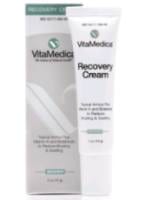The UK is cracking down on the cosmetic surgery industry big time.
A new report by Sir Bruce Keogh, the health service’s medical director, recommends that fillers and toxins only be available by prescription. (Now they can legally be bought online and injected by almost anyone in the UK.)
The review was commissioned in the aftermath of the Poly Implant Prothese (PIP) breast implant scandal. These implants were manufactured with industrial silicone and have a higher than acceptable rate of rupture.
It also proposes that all cosmetic surgeons must have approved training and seeks to rein in “highly misleading” advertising and marketing practices and cut-price deals. In addition, it calls for a register of breast implant patients to be set up within the next 12 months.
The government plans to respond to the report this summer.
The British Association of Aesthetic Plastic Surgeons (BAAPS) lauded the report. “We are thoroughly relieved that the Review has come to the same conclusions as we have over the years, specifically the urgent need for dermal fillers to require a prescription for use. This measure will kill three birds with one stone: regulating which ones come onto the market, who can inject them, and automatically banning their advertising,” says consultant plastic surgeon and BAAPS President Rajiv Grover, in a press release. “It is great news that the Government is seeking to collect data across the UK in a similar audit initiative as the BAAPS has had in place for many years, to give a truly accurate snapshot of our sector.”
New Insurance Package Offered to UK Patients
Just days after the Keogh report was released, BAAPS and Lloyd’s of London joined forces to create a policy that will safeguard all patients of surgeons who are part of the Association. The Aesthetic Surgery Commitment (ASC policy) will cover corrective treatment of common complications, but also capsular contracture.




